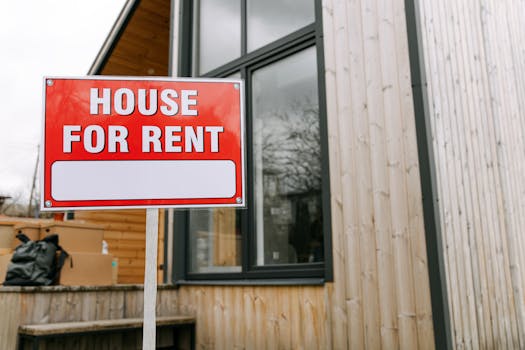Renting a home or apartment comes with responsibilities — but also with rights. Whether you’re a first-time renter or have leased properties for years, understanding your legal rights is crucial for protecting yourself from unfair treatment, unsafe living conditions, or wrongful eviction.
Here’s a practical, plain-English guide to tenant rights in the U.S. as of 2025, so you can confidently navigate your rental relationship.
What Are Tenant Rights?
Tenant rights refer to the legal protections granted to individuals who rent residential properties. These rights vary by state, but federal laws set the baseline. They typically cover:
- Fair housing and non-discrimination
- Safe and habitable living conditions
- Proper notice before entry or eviction
- Right to privacy
- Limits on rent increases and security deposit handling
Understanding these protections can help renters avoid exploitation and resolve disputes legally and effectively.
1. Fair Housing Laws: You Can’t Be Discriminated Against
Under the Fair Housing Act, it is illegal for landlords to discriminate based on:
- Race
- Color
- National origin
- Religion
- Sex (including gender identity and sexual orientation)
- Family status
- Disability
This means a landlord can’t refuse to rent to you, change terms, or harass you based on any of these factors. If you believe you’ve faced housing discrimination, you can file a complaint with HUD: https://www.hud.gov/fairhousing
2. Right to a Habitable Home
You’re entitled to a safe and livable residence — this is known as the “implied warranty of habitability.” At minimum, the rental must have:
- Functioning plumbing, heat, and electricity
- No pests or mold
- Secure doors and windows
- Compliance with local building codes
If your home becomes uninhabitable and the landlord refuses to fix it, you may have the right to withhold rent, repair and deduct, or break the lease — depending on your state.
3. Security Deposits: Rules and Return Timelines
Most states cap the maximum security deposit (usually 1–2 months’ rent) and require landlords to:
- Return the deposit within 14–30 days of move-out
- Provide an itemized list of deductions, if any
- Avoid using deposits for normal wear and tear
If a landlord wrongfully withholds your deposit, you can take legal action, sometimes recovering double or triple the amount owed.
4. Privacy Rights: When Can a Landlord Enter?
Landlords cannot enter your home without proper notice — usually 24 to 48 hours — unless it’s an emergency. Acceptable reasons for entry include:
- Repairs or maintenance
- Inspections
- Showing the unit to future renters or buyers
Your lease should state how and when notice must be given. Repeated or unauthorized entry may be considered harassment.
5. Rent Increases and Rent Control
Rent control laws exist in some cities (like NYC, San Francisco, and Los Angeles), limiting how much and how often rent can be raised. Where no rent control exists, landlords must still:
- Give advance notice before increasing rent (typically 30–60 days)
- Not raise rent in retaliation or based on discrimination
Always check your local housing authority for specific rent control and notice laws in your area.
6. Evictions: Legal Process Only
You cannot be evicted without cause and due process. A landlord must provide:
- Written notice (e.g., 3-day notice to pay or quit)
- Court filing and judgment (if the tenant doesn’t comply)
- Eviction enforced by law enforcement — not the landlord directly
Illegal evictions (changing locks, shutting off utilities, or threatening) are against the law in all 50 states.
7. Lease Agreements: Read Before You Sign
Your lease is a binding legal contract. It outlines:
- Rent amount and due date
- Duration of tenancy
- Pet policies, maintenance duties, and more
Read the lease carefully. Ask for changes in writing before signing if you notice unfair clauses like excessive late fees or vague repair terms.
8. Repairs and Maintenance: Who’s Responsible?
Landlords must handle major repairs and maintain the property’s habitability. Tenants are generally responsible for:
- Minor wear and tear
- Keeping the unit clean
- Reporting issues promptly
Document all repair requests in writing. If repairs aren’t made, options may include contacting a housing inspector or using escrow accounts (varies by state).
9. Breaking a Lease: When You Can (and Can’t)
You may legally break a lease if:
- The property is uninhabitable
- You’re a victim of domestic violence (in most states)
- You’re called to military duty
- The landlord violates major terms
Otherwise, early termination may result in penalties unless your lease includes a break clause. Some landlords may agree to a mutual termination if you provide enough notice and help find a replacement tenant.
10. Where to Get Help as a Renter
If you’re dealing with a landlord dispute, eviction threat, or feel your rights have been violated, help is available:
- Local legal aid organizations
- State tenant unions
- Your state’s housing authority
- HUD’s Tenant Rights page: https://www.hud.gov/topics/rental_assistance/tenantrights
You may qualify for free legal assistance, especially in eviction cases or low-income housing.
Knowing your rights as a tenant empowers you to protect yourself, communicate more effectively with your landlord, and maintain a safe, stable living situation. Laws continue to evolve — especially after COVID-era moratoriums — so staying informed is more important than ever.
